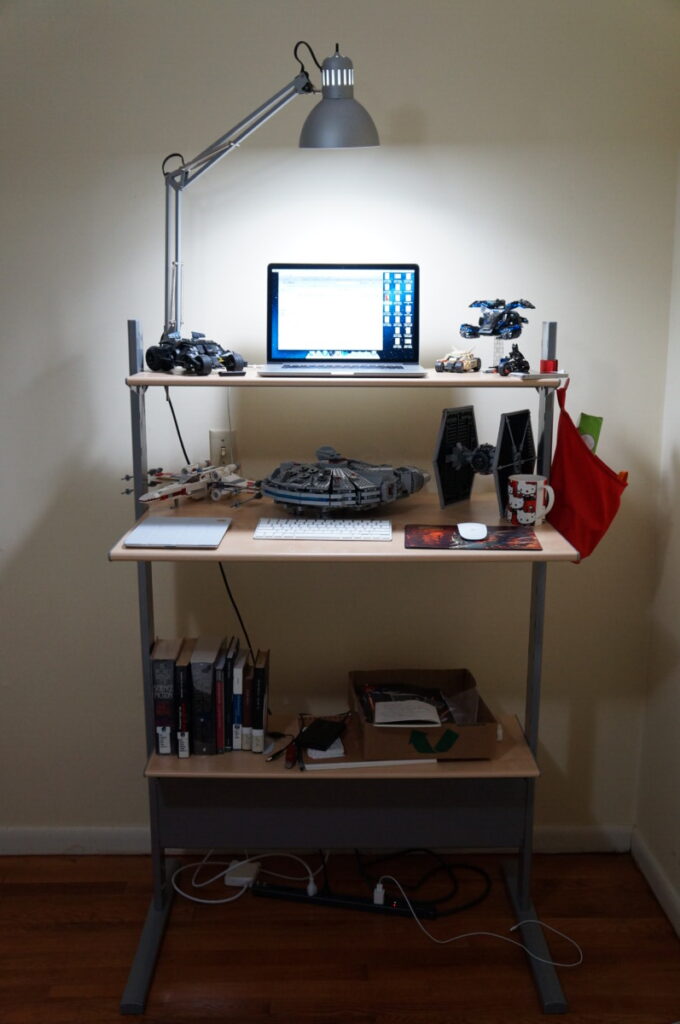
For this week’s class, you read articles about workplace etiquette, preparing for interviews, and the effect of distractions on attentional focus, which we will discuss as a part of today’s class. We also need to establish some of the regular work product that you all will be doing this semester based on each of your unique internship circumstances. Below is an outline for today’s class.
- Brief Introduction
- Beginning of Class Writing Assignment
- Click on the heading of this blog post title above–“Week 2: Workplace Etiquette, Interviews, and Writing Space,” scroll down to the comment area, and write at least 250 words in response to this week’s readings. You can summarize the readings, you can relate the readings to your own experience or something else you have read or learned about, etc. Any writing of 250 words or more that are related to the readings are fair game for this weekly assignment at the beginning of class.
- Post your comment after 15 minutes even if you don’t reach the 250 word minimum threshold.
- Why we are doing this: It helps you organize your thoughts before discussion and it gives you regular writing practice.
- Discuss the readings assigned for Week 2.
- Discuss internships
- Where is everyone at? (Amy: Abby?) (Kahini: charity?) (Sergio:?) (Maria:?)
- Potential Internships for Those Who Need Them
- Nursing Department
- Writing Center
- Communications Office
- Write It Forward
- Weekly Log
- Begin writing this now until the end of the semester in a single file (Google Doc, Word docx, OpenOffice odf, etc.). Include the first date of a given week for each entry at the top of the page. Write at least 250 words about your current or past experience as appropriate. For example, if you are currently in an internship, your logs should record your experiences, thoughts, challenges, solutions, etc. that you find significant each week. Or, if you have completed your internship, your logs can be about experiences, projects, interactions with people in the workplace, challenges, solutions, etc. based on your past experience. And, if you are continuing in a new internship for additional experience, you can write about that, too. The point is to write at least 250 words per entry with one entry per week about your experience in the internship.
- Why we are doing this: It helps you articulate your work experience so that you may better reflect on, consider, remember, and act on those experiences as you transition into the workplace. Additionally, it gives you extra writing practice, which research shows will automatically improve your writing ability.
- Review readings and homework for next week.




I found all three readings to be informative, interesting, and useful. The first reading was about how multitasking affects people. It talks about focusing for people who multitask often and those who multitask less often. There were many experiments done but the research might not be solid or known for certain. The second reading was about tips regarding work and how to handle annoying possibilities in the office or workspace. Some things we might do and what others might do may be annoying and disruptive to our workplace. There is “the loud talker”, “the gossip”, “the nosy cubicle mate”, “the boring storyteller”, “the chronic interrupter”, and “the tuna melt reheater”. This article talked about some ways people are annoying to other coworkers. We should be tolerant and polite when dealing with problems in the workplace. We should also be patient. Be kind to other human beings because it makes you “a better human being”. The third and final article talks about answering job interview questions. The job interview makes or breaks you. It decides whether you get the job or not. A job interview is when employers see how good of a fit to the job you are and whether you have what they want. Employers might ask you to describe yourself, where you see yourself in 5 years, what is your greatest weakness, and ask you if you have any questions. You should have prepared yourself when you come to an interview. You should know things about the company and if you anticipate questions you might have and think it through you will answer better. These articles gave me information and advice I could use to improve myself.
Week 2: 02/6/23
Cognitive Control in Media Multitaskers
The first reading discusses cognitive control in media multitaskers. Those who are heavy media multitaskers often have a more difficult time in test taking that requires task-switching ability due to the inability to filter out the interference. These individuals can not differentiate the information because it requires multitasking.
This article focused on chronic media multitasking. Overall, those who are heavy media multitaskers are worse on a test regarding task-switching ability. This is due to the decreased ability to filter out the interference from what is irrelevant in the task set. It states that the human cognition is ill-suited for attending/paying attention to multiple input streams.
The question in asking was: Are chronic multitaskers more attentive to irrelevant stimuli in the external environment to irrelevant representations in memory? It tested the relationship between chronic media multitasking and cognitive control abilities. The task-switching results were that the more intensive multitaskers are more susceptible to distractors.
The concluding statements were the discussion answering the question based on the tests conducted. It led to results stating that many are unable to cope with the changing media environment. This is significant in regards to understanding that to focus on the task given at hand, filtering out the interference is important.
Your office is more annoying than you remembered. Here’s how to handle it.
Statistically 60% of US workers are continuing to work from home as of January. After the pandemic it seems that the mindset has changed since everyone went into lock down. The comfort of one’s home is now more appealing because it consists of an environment that is tailored to you. If something irritates/bothers you, you can fix it without worrying about what others might say/think or feel. Whereas, in a work environment you have to be mindful in regards to your actions are their consequent actions on others. These are people you see on a daily basis which makes it even more of an importance.
This article gave advice on how to deal with in person interactions at a workplace although I feel as though this is applicable to settings outside the workplace. For instance, at college when there are communal areas it is beneficial to respect each other’s space and time. However, career wise there are also many types of people we encounter. In terms of how to respond I liked reading about responding and reaction because facial expressions and tone give away a lot. In order to ensure a safe and warm environment it is best to take a step back and breathe. Take a moment to think about what you are about to do. Another method discussed was S.E.C which is an acronym for smile, maintain eye contact and remain calm.
By being polite you are also understanding that the lockdown was different for everyone. It is hard to accommodate immediately but as the article stated there are several methods of responding to voice your concern in a nice manner.
How to Answer Common Difficult Interview Questions
I like how the article acknowledges anxiety and how it can be difficult for some people to get interviewed. Being vulnerable and exposed just depicts how many understand this to be a vigorous process. I have never done interviews before and I prepped by reading for the position and responsibilities. Of course, I checked the qualifications prior and all of this gave me a more cohesive idea on how I could fit into the environment or how they are a good fit for what I am interested in. As mentioned in the article, learning agility is an appealing trait. Typically even google searches on how to answer the question regarding your biggest weakness is to state that I am too hard working, I recheck my work several times and such. However, those are qualities showcasing the good qualities. Sometimes asking a question at the end can be stressful and overwhelming because you already are nervous and trying to make it through the interview, as mentioned however, MS.Sailing mentions that it shows you care.
The article on interview questions highlighted the situation we are bound to face in the path of our careers. The rigorous interview process encompasses multitude facets of how the individual is best suited for the job. This article helps give perspective from those who have done it and been through the process themselves.
After reading all three articles this week, all that I thought of was ” I should have read this before beginning a job in an office. All my life I’ve work retail and in the food business, off the bat you can tell how different the environments are. At a retail job or working at a food place, everything is fast pace, loud, and physical. Physical in the sense of a lot of movement and often times picking or moving heavy objects at a time. Compared to those environments, the office is a peaceful, quite, and the physical demand is close to minimal. After reading “How to Answer Common Difficult Interview Questions”, I began punching the air because this could have been helpful to me when I began my interviewing process at my current job. I mainly struggled with the “What is your greatest weakness” question because how can you answer that without sounding conceded or full of yourself? I remember saying my greatest weakness is learning how to say no when I already have too many tasks on my hands.
1. How to Handle Returning to the Office
This article was interesting because I didn’t expect the transition back to physically going to work to be that difficult for some. I was surprised that in just two years people would fall out of a habit that they developed likely most of their adult lives. Post-covid office work for me was not that different, I was able to get along with work regularly. Of course, I understand that working from home definitely has its perks in terms of comfort and environmental control, as mentioned in the article. After reading the article I think it’s important that everyone understands that they are not home- and they should leave those habits behind as they leave for work.
2. How to Answer Common Difficult Interview Questions
This article did give me more insight into the interviewer’s reasons behind asking those difficult questions. I have received those questions in previous interviews, and I did find the vagueness of them hard to answer. After reading the article, I think the interviewers want specific answers about specific moments in your life, they want to get to know you better with those types of questions.
3. Cognitive Control in Media Multitaskers
This research article on the effects of media multitaskers was an experiment to find out if media multitaskers have different approaches to performing tasks that require cognitive control. Due to increased media consumption, researchers want to test if heavy media multitaskers lose focus easily and their memory retention abilities. They have put it to a test with a series of controlled experiments between the heavy media multitasking group and the light media multitasking group. The results show that the heavy media multitaskers did have more difficulty performing cognitive control tasks, this is because they are exposed to irrelevant content that they are more likely to get distracted by. They have difficulty focusing on one task because they aren’t used to it, they are used to media content constantly streaming, unlike light media multitaskers.